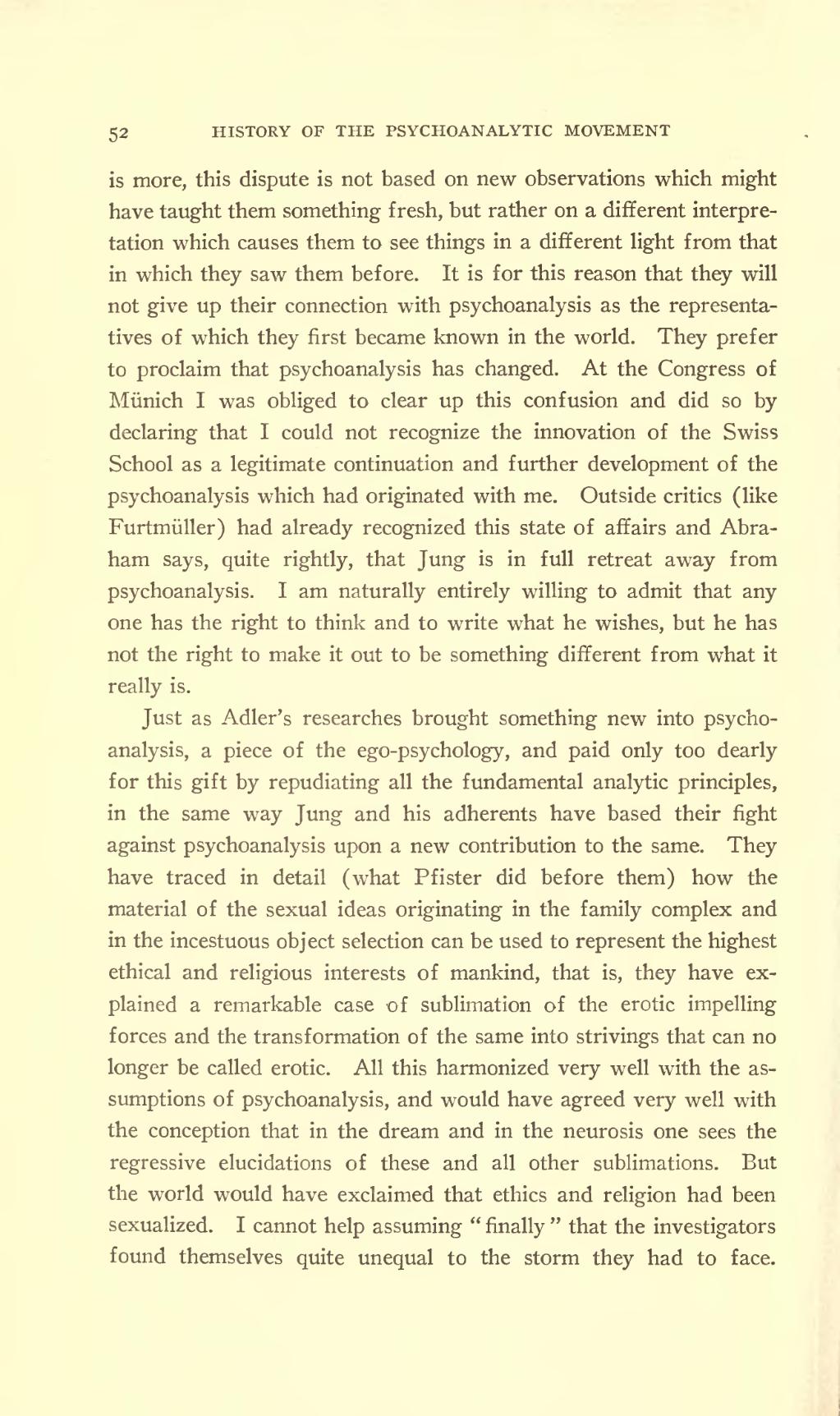is more, this dispute is not based on new observations which might have taught them something fresh, but rather on a different interpretation which causes them to see things in a different light from that in which they saw them before. It is for this reason that they will not give up their connection with psychoanalysis as the representatives of which they first became known in the world. They prefer to proclaim that psychoanalysis has changed. At the Congress of Münich I was obliged to clear up this confusion and did so by declaring that I could not recognize the innovation of the Swiss School as a legitimate continuation and further development of the psychoanalysis which had originated with me. Outside critics (like Furtmüller) had already recognized this state of affairs and Abraham says, quite rightly, that Jung is in full retreat away from psychoanalysis. I am naturally entirely willing to admit that any one has the right to think and to write what he wishes, but he has not the right to make it out to be something different from what it really is.
Just as Adler's researches brought something new into psychoanalysis, a piece of the ego-psychology, and paid only too dearly for this gift by repudiating all the fundamental analytic principles, in the same way Jung and his adherents have based their fight against psychoanalysis upon a new contribution to the same. They have traced in detail (what Pfister did before them) how the material of the sexual ideas originating in the family complex and in the incestuous object selection can be used to represent the highest ethical and religious interests of mankind, that is, they have explained a remarkable case of sublimation of the erotic impelling forces and the transformation of the same into strivings that can no longer be called erotic. All this harmonized very well with the assumptions of psychoanalysis, and would have agreed very well with the conception that in the dream and in the neurosis one sees the regressive elucidations of these and all other sublimations. But the world would have exclaimed that ethics and religion had been sexualized. I cannot help assuming "finally" that the investigators found themselves quite unequal to the storm they had to face.
